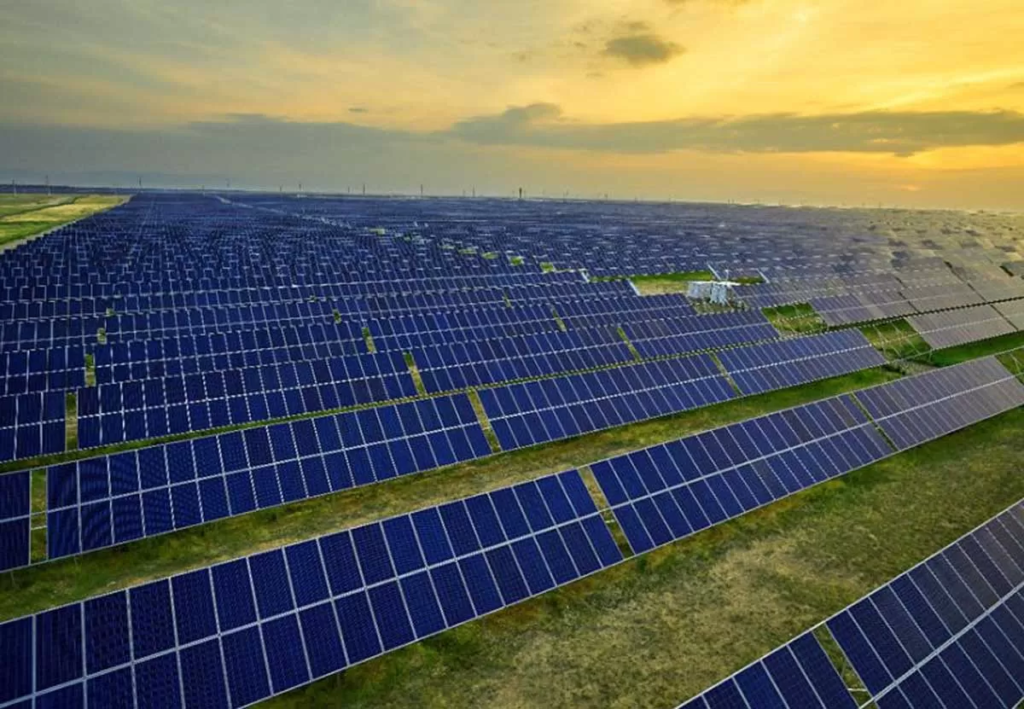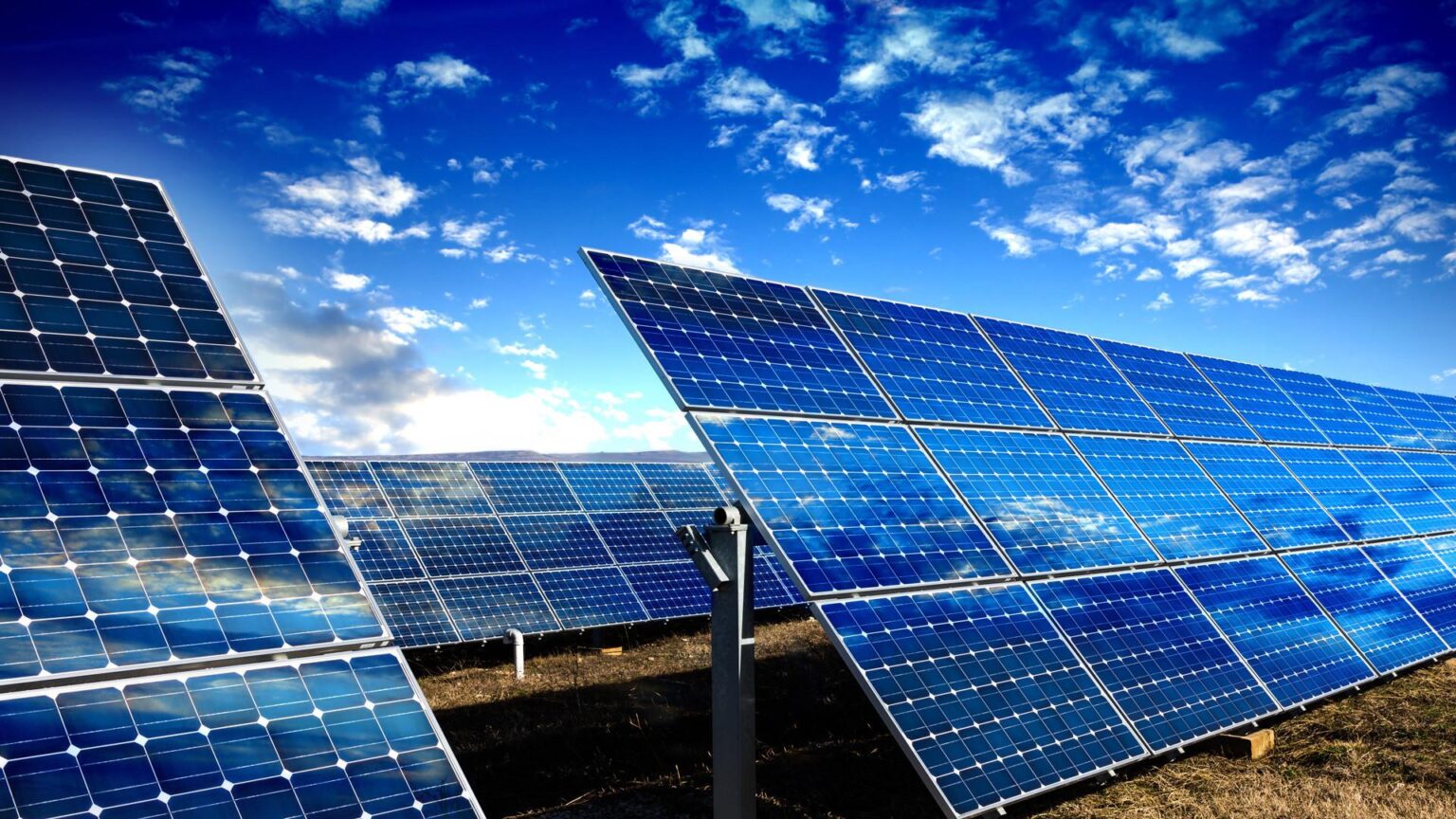Bahrain is taking a big step toward a cleaner and greener future. The country’s Energy Ministry has confirmed a new solar power project that could become one of the largest in the Middle East. This development highlights Bahrain’s growing commitment to reducing its carbon footprint and achieving net-zero emissions by 2060.
The solar farm project is not just a milestone in the country’s renewable energy journey—it also plays a vital role in the region’s shift toward sustainable power solutions.
A Big Leap in Solar Energy
The new solar farm will be constructed in the southern region of Bahrain and will have a capacity of over 700 megawatts (MW). Once completed, it is expected to power thousands of homes and reduce the country’s reliance on fossil fuels. According to the Energy Ministry, this project reflects Bahrain’s ambitious energy strategy that focuses on sustainability, innovation, and clean energy.

Bahrain’s Minister of Electricity and Water Affairs, Yasser bin Ibrahim Humaidan, stated that the project had been approved after a detailed feasibility study. It aligns with the National Renewable Energy Action Plan (NREAP), which aims to ensure 10% of the country’s energy comes from renewable sources by 2035.
Part of a Larger Climate Vision
In 2021, Bahrain announced its long-term goal of net-zero carbon emissions by 2060. The new solar project is a major step toward meeting that goal. The Kingdom has already initiated several smaller-scale solar programs in government buildings, schools, and private properties, but this large-scale plant marks a new level of commitment.
Officials have said the plant will include advanced solar technologies and will use energy storage systems to maximize efficiency. This means the solar farm will be able to store extra power during the day and release it when needed, especially during peak hours.
Economic and Environmental Benefits
The solar project is expected to generate thousands of jobs during its construction and operational phases. Local companies will also benefit, as the government plans to involve Bahraini firms in engineering, maintenance, and logistics roles.
Environmentally, the plant will significantly cut carbon dioxide emissions. It’s estimated to reduce more than 1 million tons of CO₂ annually, contributing directly to Bahrain’s climate goals.
In addition to environmental gains, the solar farm will help reduce Bahrain’s dependence on imported oil and gas, which will strengthen national energy security and save costs in the long run.
Bahrain’s Renewable Energy Journey
Bahrain has traditionally relied on oil and gas for most of its energy needs. However, over the last few years, the country has recognized the need to diversify its energy mix and explore more sustainable options.

The government launched its first Renewable Energy Action Plan in 2017, focusing on increasing investment in solar and wind energy, improving energy efficiency, and reducing greenhouse gas emissions.
Some key renewable energy projects already in place include:
- A 3MW solar system at the Bahrain International Circuit
- Rooftop solar panels in various government buildings
- A waste-to-energy pilot project with a local municipal council
These small-scale successes have paved the way for larger ventures like the new solar farm.
A Regional Race for Clean Energy
Bahrain’s announcement follows similar moves by its Gulf neighbors. Saudi Arabia, the UAE, and Qatar have all launched major renewable energy projects as part of their own clean energy strategies.
For instance, Saudi Arabia’s NEOM city is planned to be powered entirely by renewable energy, while the UAE’s Mohammed bin Rashid Al Maktoum Solar Park is one of the largest solar parks in the world.
By launching this new project, Bahrain is signaling that it too wants to be a leader in the green energy movement in the Middle East.
International Support and Partnerships
Bahrain is also working with international partners and institutions to secure funding and technology transfer for the solar farm. The government is expected to launch a public-private partnership (PPP) model to attract foreign investments.
Organizations such as the International Renewable Energy Agency (IRENA) and the World Bank have expressed interest in supporting Bahrain’s renewable efforts. The involvement of global players will help ensure that the project meets international standards for quality, efficiency, and sustainability.
Looking Ahead
The solar project is expected to break ground in early 2026 and be fully operational by 2028. It will be monitored through a real-time digital system to ensure optimal energy output and minimal environmental impact.
As the project progresses, Bahrain plans to introduce more green policies to support electric vehicles, green buildings, and energy-efficient infrastructure. This reflects a broader vision for a low-carbon economy that can stand as a model for other nations in the region.
Public Awareness and Education
Alongside technical advancements, the government is also focusing on raising awareness among citizens. Educational campaigns, workshops, and school programs are being launched to teach the next generation about the importance of renewable energy.
The Energy Ministry believes that building a green culture is as important as building solar farms. Public cooperation and awareness will be essential in maintaining the success of these large-scale projects.
Final Thoughts
Bahrain’s new solar farm marks a turning point in the country’s energy and environmental strategy. By investing in clean power, the Kingdom is setting itself up for a more sustainable future, creating jobs, cutting emissions, and joining the global fight against climate change.
The country’s commitment to reaching net-zero emissions by 2060 is now backed by concrete action—and that sends a strong message to the world.
Suggestions
For more on Bahrain’s renewable energy policies and goals, visit:
- Bahrain’s Sustainable Energy Authority
- IRENA – International Renewable Energy Agency
- World Bank Climate Change Projects
Also Read – Ferrari Set to Unleash Major Upgrades for Bahrain Grand Prix



